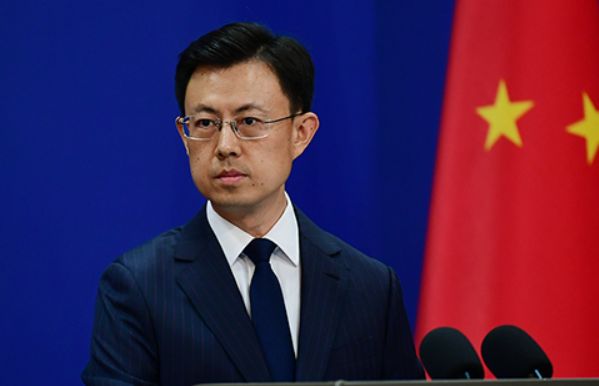The 25th China-EU Summit held in Beijing marked the 50th anniversary of diplomatic relations and focused on strengthening strategic ties amid growing trade tensions. President Xi Jinping and Premier Li Qiang met with top EU leaders, emphasizing mutual respect, open cooperation, and multilateralism.
Both sides pledged to address trade frictions through dialogue, rejected economic decoupling, and agreed on enhanced green and export control partnerships. China defended its industrial policies and called for easing EU restrictions on tech exports. The summit concluded on a positive note, aiming for deeper cooperation over the next 50 years.
China-EU Summit in Beijing Signals New Chapter Amid Trade Tensions and Global Challenges
The 25th China-EU Summit, held in Beijing, came at a crucial moment in the geopolitical and economic landscape, as both powers sought to recalibrate ties amid global uncertainties. Marking the 50th anniversary of diplomatic relations between China and the European Union, the summit was attended by President Xi Jinping, Premier Li Qiang, European Council President Antonio Costa, and European Commission President Ursula von der Leyen. The summit yielded a series of critical discussions and agreements that could reshape the future of China-EU relations.
China-EU Summit in Beijing:In a year of milestone significance, Chinese President Xi Jinping emphasized the need to draw from half a century of experience in bilateral cooperation. Addressing the delegation from the EU, Xi reiterated that mutual respect, open cooperation, and shared benefits must remain at the core of China-EU ties. He also proposed a tripartite strategy for the future: upholding mutual respect, managing differences constructively, and jointly practicing multilateralism to safeguard global order.
China-EU Summit in Beijing:Premier Li Qiang also underlined the importance of free trade and multilateralism in ensuring a dynamic global economy. He stated that as long as China and the EU uphold these principles in earnest, the global trend toward a multipolar world would continue to strengthen.
China-EU Summit in Beijing:The summit proved to be more than ceremonial. A wide range of agreements and understandings were reached, demonstrating the depth and breadth of the strategic partnership. Both sides reaffirmed their commitment to deepening diplomatic engagement, enhancing mutual trust, and expanding trade and investment channels. This collective will was seen as a foundation for the next 50 years of cooperation.

China-EU Summit in Beijing:Significantly, both China and the EU expressed a strong commitment to addressing existing trade frictions through dialogue and consultation, not confrontation. The two sides jointly opposed the decoupling of economies and the severing of industrial and supply chains. Such rhetoric comes at a time when global supply chains have become increasingly vulnerable due to geopolitical tensions, pandemic-related disruptions, and protectionist pressures.
China-EU Summit in Beijing:One of the most notable achievements of the summit was the release of a joint statement on climate change. The document emphasized the importance of the China-EU green partnership and highlighted both parties’ commitment to making the upcoming United Nations Climate Change Conference in Belém a success. The joint effort on climate issues underscored a rare area of strong alignment between the two powers.
China-EU Summit in Beijing;The summit also resulted in an agreement to develop an “upgraded version” of the China-EU export control dialogue mechanism. The new framework is intended to improve communication, address concerns in a timely manner, and maintain stability in industrial and supply chains. Given the growing scrutiny on sensitive exports and technological decoupling, such dialogue could be vital for both sides moving forward.
Still, the differences between China and the EU remain evident. On economic and trade issues, China reportedly communicated its views in a comprehensive and respectful manner. It emphasized the complementary and win-win nature of China-EU economic relations and committed to achieving balanced trade growth. In a bid to address EU concerns, China expressed its willingness to import more high-quality products from the EU and called on the bloc to ease its restrictions on high-tech exports to China.
The issue of industrial overcapacity—particularly in the new energy vehicle (NEV) sector—was another focal point. China strongly rebutted EU claims of overcapacity, citing a report by the International Energy Agency that predicted a global shortfall of 27 million NEVs by 2030. In this context, China’s production capacity is not excess but a strategic contribution to meeting global demand and bridging what it calls the “green gap.”
China also defended its industrial subsidy policies, stating that they adhere strictly to World Trade Organization (WTO) rules and follow the principles of openness, fairness, and compliance. Beijing pointed out that subsidy policies are a common global practice, including in the EU, and urged Brussels not to apply double standards.
The Ukraine crisis, although not a bilateral issue per se, was addressed at the summit. China reiterated that the conflict should not become a point of contention between Beijing and Brussels. It emphasized its consistent position in favor of dialogue and a peaceful political resolution. China also voiced concerns over EU sanctions on Chinese companies allegedly linked to Russia, calling for greater dialogue and mutual understanding to address such issues.
Despite the tensions, the tone of the summit remained constructive. Chinese officials described the event as positive and forward-looking. The talks helped build a better mutual understanding and created a more favorable environment for future cooperation.
In conclusion, the 25th China-EU Summit served as both a reflective moment on five decades of diplomatic engagement and a forward-looking dialogue on how to address the challenges of a rapidly changing world. By recommitting to cooperation, free trade, and multilateralism—while acknowledging their differences—China and the EU have set the stage for a potentially more resilient and strategic relationship.
As global power dynamics shift and new challenges emerge, such as climate change, economic imbalances, and geopolitical instability, the China-EU partnership will play a critical role in shaping not only their bilateral future but also the contours of international cooperation in the 21st century.

